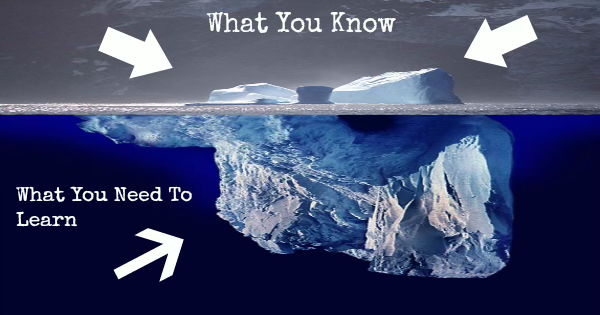Decentralized knowledge bases will fix information asymmetry forever
Facts are coming back, in a BIG way.
I aspire to be less wrong. However, in world of propagandists and censors willing to lie to score political points, this is increasingly rare.
Why?
As my favorite whipping boy points out, this problem is fundamentally about economics:
But there is one other sort of cost asymmetry that I do think favors misinformation. It’s about public vs. private goods.
Some people may spread misinformation as a hobby or a political signaling device, but many people are doing it for personal gain. Antivaxxers have blogs and podcasts to promote. Propagandists serve their nation or movement. Corporate shills are collecting a salary, academic frauds get tenure, and so on. For all of these actors, spreading misinformation is a job rather than a hobby. It confers direct financial and/or reputational benefit.
In other words, where economic incentives favor fraud, it will bloom! (EDIT: For a more in-depth look at how public goods are defined, see “The Continua of Excludability and Rivalry”. Just subscribe to everything Bryan Caplan!)
For example, if you know that inflation is actually “fiddling with the unit of account”, but you make your living telling people that inflation is a mysterious phenomenon that you’re probably imagining anyway—people should rightfully suspect you of misleading.
The problem? They don’t!
And how could they? Noah Smith is an excellent writer! He has a ton of education and experience! He has excellent reasoning skills! And, aside from a curious blind spot for the moral hazard of printing dollars, he seems to be a nice guy!
It is simply too difficult for the average shlubbs of the world to see propaganda and shoddy work for what it is. It requires the integration of too much diverse knowledge to be reasonably practical for almost anybody, particularly those with lower incomes and less free time.
Fortunately, we are on the cusp of a major innovation in information technology that will flip the incentives in favor of good faith by making deception—of every kind—so risky as to be rendered obsolete.
NOSTR (Notes and Other Stuff Transmitted by Relays) is a new internet protocol that is the first elegant solution for defeating information gatekeepers while allowing for the wonderful benefits of social networks. Right now our information networks are distribution-centric rather than information-centric. In other words, most people are forced to read whatever journalists and editors decide to write about, rather than whatever may be in demand. To be sure, competition helps over the long term, but the economic paradigm still favor centralization.
That is about to change.
In a world where trust is routinely abused without consequence, the disruptive potential of passive information sharing among trusted peers cannot be overstated!
Passive information sharing, or rather, private knowledge bases are the necessary innovation here. Remember, most people don’t have time to do research because we have jobs and such, which makes it easy for bad actors to get away with lying, even pathologically. And once you’ve bought into something like flat-Eartherism, the in-group-out-group mentality is likely to trap you there, even if you Think Again.
But if you are part of a network with disproportionately high-quality information, like Substack, you will be able to reap the benefits of your network’s knowledge without having to know it yourself. For those in the rationalist community, I believe this represents an opportunity to codify Double Crux protocol.
Imagine a world in which you can trace the lineage of each and every idea! Imagine a world in which redefining words to bolster bad faith arguments can no longer hold sway! Imagine a world in which the “social contract” can be codified among a Network State! Imagine a world in which you can search your friends’ “brains” without even talking to them! Imagine a world in which your employer must pay royalties to access your knowledge after your departure! Imagine a world in which you can *immediately* integrate a new knowledge base by hiring someone! Imagine a world in which AI can be trained on information that is known and agreed upon!
How?
Every word you read here has associated meta-data, even if it is only implied. The previous sentence is both a declarative statement, and a factual assertion that can be tested. The words within each sentence have (presumably…) an agreed-upon definition. Everything qualitative can be made quantitative, and then aggregated. That means we can do magical things like count up factual assertions, how many have evidence, and ultimately, how many are correct! And other fun stuff like track the quality of work over time, and rank journalists and publications accordingly. Not only that, we’ll be able to overlay corrections IN REAL TIME, and pay journalists for exposing truth! Whistleblowing could become very lucrative!
All of this—and more!—will be made possible by the native data model of NOSTR, which can be expressed in a graph database.
The free market is about to regulate the information economy.


